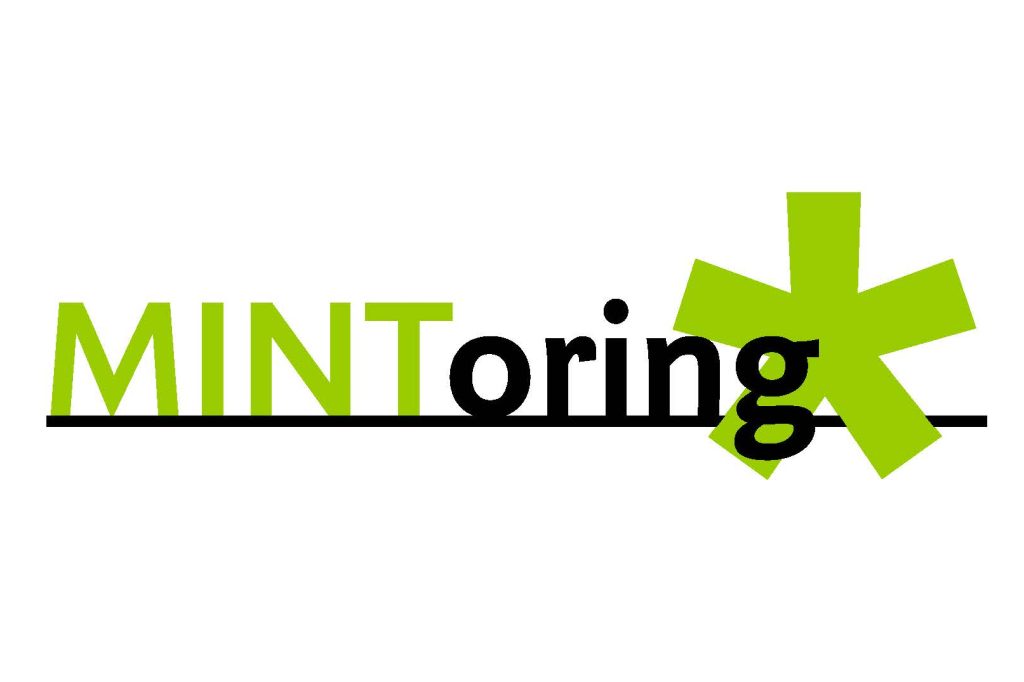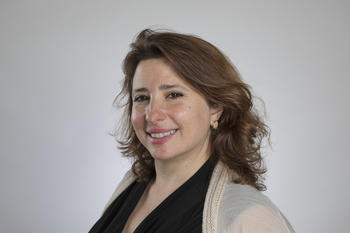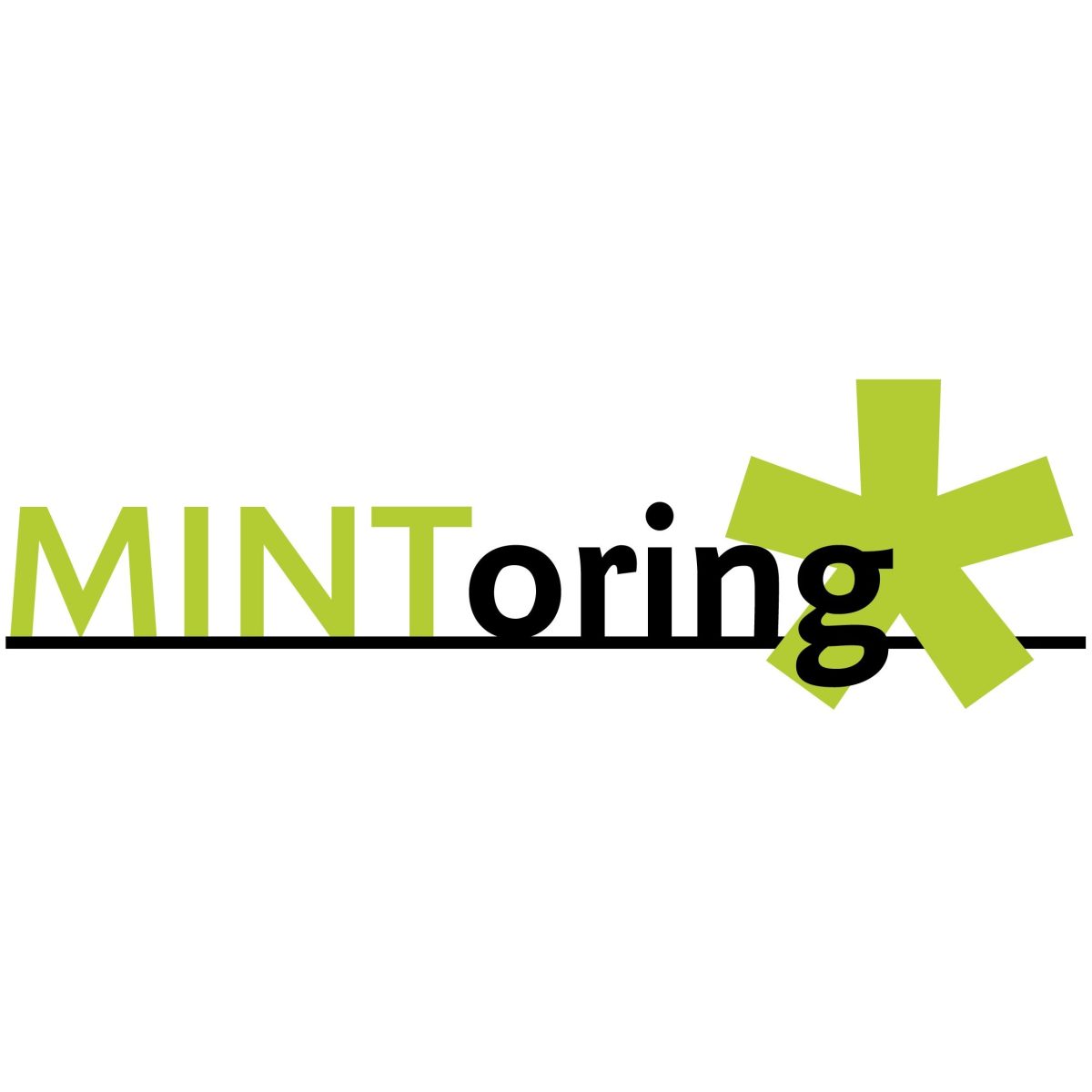
Interview with Dr. Nelly Mouawad, MINToring coordinator at FU | Part 2 – Hundreds of female high school students are on campus on the annual Girls’Day, which is organised by the MINToring team. MINToring aims to motivate women to study STEM subjects, create a safe space, and offer them role models. Dr. Nelly Mouawad reflects upon challenges in the academic system for women and the future of this outreach program. | Part 1
Looking back at your own biography, do you see any significant changes from when you started as a girl in sciences and how the situation is for students today?

“I do feel that we still have the same struggles but with a different perspective. For example, today there is more awareness of the problems, and there are bold conversations about gender equality. When I was in high school, I chose the physics track and was the only female student in a class of 30 male students. I felt like the pressure was on me to perform and my math teacher told me that I had to succeed because I was representing the female gender; if I failed, they would have all failed with me. All my teachers were male, but I wasn’t aware of the gender gap than and I was not aware of me being an outlier.
Later, it became clear to me that the scarcity of female scientists stems from cultural rather than intellectual factors. It’s not a lack of talent in mathematics or physics but the manner in which women were addressed, perceived, and mentored, coupled with the missing role models. We were the reflection and the product of a biased patriarchal society, following societal norms and expectations. Luckily, that has changed today to some extent.
For a couple of decades, the government has been dedicating funding to multiple programs aiming towards closing the gender gap in sciences and towards equality. As a matter of fact, we do see changes, the number of female students in physics and computer sciences has increased since. But we’re still not there and we are still far from equality. We are especially lacking behind in leadership positions and that means that we are leaving a certain part of society behind.”
Did you have a role model in school when you were the only girl in an all-boy class in the physics track?
“At school and in university, most of my science teachers were male and society expected only men to go into engineering. In retrospect, I felt how my male friends and cousins were encouraged and pressurized to be good in math. It was an imperative thing for them, but not for me. It was hard to think of myself as an engineer because when I said I wanted to be an engineer, I was told that it was a tough job that is not meant for a woman. So, yes, it’s important to have role models. Yes, it’s important to see other women doing a certain job so that you think you can do it, too, and so that societal biases start to dissipate.
My aunt was not able to finish her studies because it was imposed on her to get married at a young age. She was the smart math person in the family and so was my older sister, and I was encouraged by both to excel in math. Math games and competitions at home were part of the fun activities. So that normalized it for me, in addition, I was simply lucky to fit into the educational system. I was a good student who had high grades in sciences and that took me to a scientific track at university. However, if I had not been a good fit to the system, I could have gone off track easily. Luckily, in my family and in my country as a whole, education is very important, my mother prioritized our studies above all, and I am the product of her sacrifices and this culture.”
Could you try to summarize one or two key points in the academic system that should be changed in regards of equal opportunity?
“Despite increased female enrolment, women still constitute a minority in STEM subjects. To visualize this imbalance in colors, think of 30 green dots dispersed among 70 red dots – that is the current ratio of 30% female students in STEM subjects. This highlights how female students might feel as being overwhelmed by a certain culture that is not necessarily theirs. In the end, individuals want to fit in and feel that they identify with the place or its culture. One concept I hope to work on is to design a support network at Freie University that aims to connect and empower female students and minorities in physics and computer sciences. Such a structure could help with retainment of female students and professionals in these fields.
Research on the obstacles felt by women in STEM shows that female students have a low sense of belonging in a male-dominated culture, which could result in them leaving the field. Following on that, rethinking the academic environment, especially for women in STEM subjects at universities in Germany is essential. At Freie Universität, we are lucky to have Professor Martina Erlemann and her team at the physics department conducting research on the culture and the work environment of the department where they also tackle that question.
Coming back to the MINToring program, it belongs to a variety of projects that are, firstly, short-term, which means they are short-sighted and not expected to make a big change. Secondly, they are restricted in reach and can create only local changes; thirdly, they are low in capacity – they are thought of as an accessory and not imperative on anyone; and lastly, they are low on budget, with employees in part-time positions. Such designs, by default, are meant to cease, and not thought to be sustained. For a program like MINToring that’s coming to an end, there is no structure to absorb the many skills and resources developed over the years, those might be simply put out of service.
One might want to revisit the current format and possibly try to incorporate outreach program more into the educational structure. I am aware of my bias by the American system, which is mostly based on private education and more resources; that’s how I did outreach and saw it done in the US. Amidst a strong culture of volunteering, there is funding there too. When I hosted the Observatory nights at Widener University, that was part of my job description. You can’t expect every professor and every scientist to volunteer in outreach without financial or professional remuneration, or appreciation for their time and contributions. I strongly believe that more outreach is needed from academics, and there is no escape from it. However, it is still a weak part of the structure. That’s a change I would love to see.”
Right now, it seems that the MINToring program ends this year in October. It was established 13 years ago, in 2011, in physics, 2014 computer sciences were added and eventually geosciences in 2021. What does the end of MINToring mean for our university?
„With our program, we have offered events for a few hundred of female students at FU interested in sciences throughout the year. For example, consider the summer internship we offer, the Berufspraktikum, where 10 to 20 students come to FU for three weeks. I think it’s great to see how motivated the students are to have been part of this program and the difference it has made for them. To my knowledge, as a program coordinator, FU stands out among other universities in the region with an edge through MINToring and other established and larger outreach programs such as PhysLab, NatLab, Schüler:innenUNI Nachhaltigkeit + Klimaschutz and SommerUNI.
I wish for FU to become the place female students choose to study physics or informatics because there is a support system. This is something I am still hoping to achieve during my work here. I also wish to see more empowerment for anyone who can innovate and pitch ideas and projects, regardless of their position in the academic system. The academic hierarchy needs to slowly disperse because our society is moving in a very different direction, particularly with the younger generation.
But, indeed, the MINToring program seems to be ending in October, so there might not be a continuation there. However, if our proposal for MissionMINT funded by the BMBF suceeds, we would be developing another project where there is more support for female students. FU will be continuing along similar, but not the same concepts. We’ll be retaining the elements that were successful in MINToring and include additional elements. On the program, with the assessment that we did and the experiences that we had, we feel that the program made a difference, and we are sad to see it go away.”
What are your plans for the final period of the MINToring program?
“We don’t have too many months left. I want to make sure I am there for everyone in this transition and lead the team mindfully. I want to ensure the team can keep up with all our projects, especially because we started two new collaborations lately, with Schüler:innenUNI Nachhaltigkeit + Klimaschutz and Europlanet Science Congress, and to finish the program with a big hooray.
I am also working on the visibility of the MINToring program and would like to increase awareness on what it achieved in the past years, and how it supported the departments. I want to talk about why attracting female youth in STEM is needed at the university level, and how such informal STEM programs support high-school students. In addition, I would like to invite people in the supporting departments to think with me about a possible future for MINToring.
Apart from this, I am trying to make our work more visible on the Berlin scene by participating in conferences where I share my experiences around MINToring and talk about the importance of outreach. I am fighting for this program to survive – in one form or another. For me, that’s a very important moment for women in STEMs – I think we might be at a turning point.”
The interview was conducted by Merle Büter, gender equality specialist in the Chief Gender Equality Office at Freie Universität Berlin
